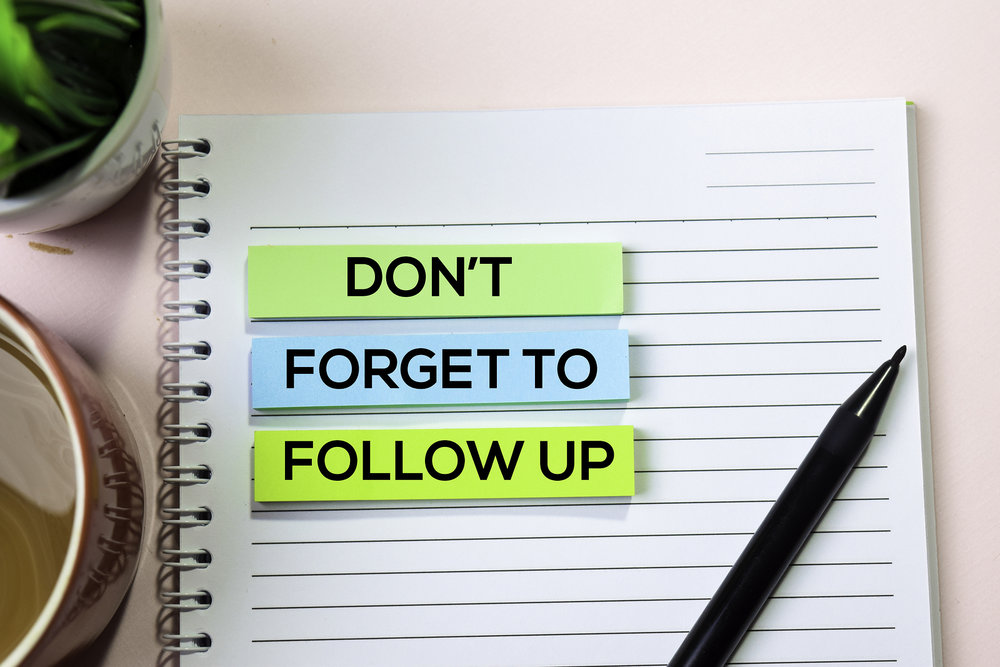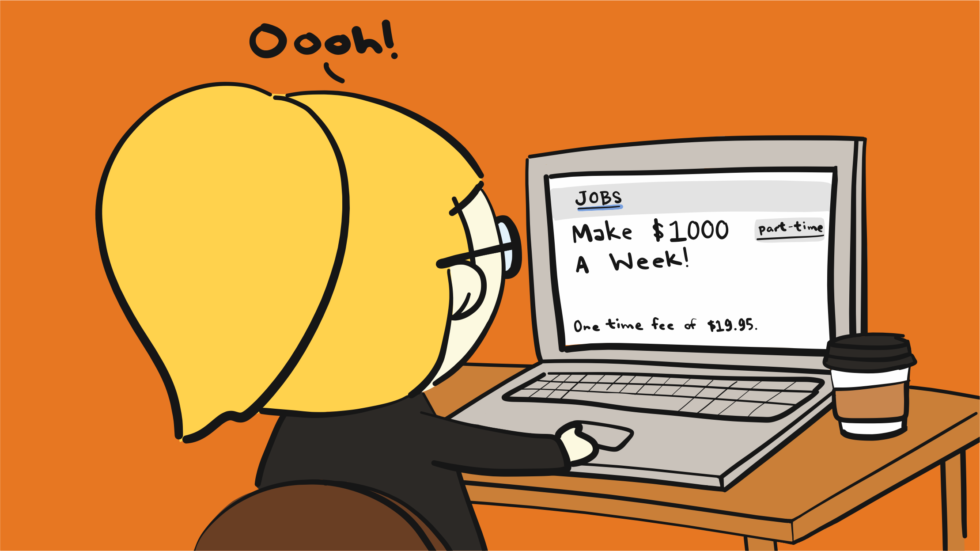Here is the right way to reach out for an update without being a pest
So you�ve completed another milestone of your job search: going through a full day of interviews for your dream job (or, at least a stepping stone to your dream job). As far as you�re concerned, you nailed it! (If you need some tips on how to prepare for an interview, have a look here.) You�re positive you�re a good fit and that it�s only a matter of time before they call you with an offer. But after two weeks of refreshing your email and checking your phone every few minutes, you start to get that sinking feeling�perhaps the job interview wasn�t the slam-dunk you had assumed. At this point, you may feel that the best decision is to cut your losses and move on. But don�t!
Before you put that job interview in the rear-view mirror, follow up with the employer. Of course, keep looking for jobs until you�ve received�and accepted�an offer, but there are many different reasons that you may not have heard back from the hiring manager.
Chances are there are a number of other candidates and it could take some time for the process to be completed. There are countless other reasons a response could be delayed. Maybe the person who needs to approve your offer letter has been dealing with a family emergency. Maybe the entire company needed to jump on an urgent project. Maybe the head of the department you applied for suddenly quit and the company needs to replace them first.
No matter the reason, you have no idea what is happening on the other side. Worrying about it will not help anything, but checking in with your contact might. While you certainly don�t want to come off as annoying, you should do what you can to stay on the employer�s radar. Below are three ways to do that without being a pest.
1. Write a Thank You Note
You still have one more chance to stand out and leave a good impression.
The first follow-up email after an interview should be a thank-you note sent no more than 24 hours after you meet. Some say that mailing a hand-written letter will make you stand out, but it is completely acceptable to send a thank-you email. You should always send a note to each person you interviewed with, including the recruiter. Here are some tips for writing a thank-you note:
- Be brief, friendly, and conversational. You�ve already had the job interview, so let your gratitude and personality show a little bit.
- Restate your interest in the job and any relevant details on why you�re qualified.
- Include one of the three tactics in this post to stand out from the crowd.
- Thank them for their time as job interviews can require employers to set aside a lot of time, often forcing them to push off work.
- Add any significant information you may have forgotten to say in the interview.
Here is an example thank you note:
Hi [Interviewer Name],
Thank you so much for meeting with me today. After learning more about the position, I�m very excited for the opportunity to join your team and help [create world-class marketing campaigns, inspire prospective clients, increase revenue, etc.] for [company name].
I really enjoyed hearing your perspective on [industry trend, company structure, why your company stands out, etc.].
I know my years of experience of working on [web development, copywriting, sales, etc.] would greatly benefit [company name].
Please keep me posted on the status of the hiring process. I look forward to speaking with you soon.
Warm regards,
[Your Name]
If you�re really ambitious and are feeling good about the job interview, you might even try to include an idea based on something they shared during your meeting.
For example, you could add a suggestion that looks like this:
�Our discussion about [A, B, and C] gave me an idea. Has your team considered trying [X, Y, and Z]? I found it to be an effective process in my last job.�
Make it easy for them to see why you�re the perfect fit.
2. Check-In
A quick note after some time has passed is acceptable and reiterates your interest.
Sending a thank-you note after an interview is the easy part of following up, but figuring out how to follow up after a few weeks of silence can feel more difficult. You might worry that checking in will make you seem annoying, or worse, desperate. But don�t! Following up is a normal and expected part of the process. If you approach your follow-up carefully, you can come off as diligent, interested, and you can continue to build your relationship with the team who may eventually offer you the position.
Here are some tips to keep in mind when you follow up:
- Don�t jump to the conclusion that you didn�t get the job. Sometimes the hiring process can take a while, especially if the decision-makers have a lot on their plates.
- Wait for the established timeframe and deadlines to pass. If you ended your job interview by asking about next steps and when you could expect to hear back, stick to that timeline. Once that date has passed, feel free to email a follow-up note. Here is some sample language you can use:
�Hi Jane,
I hope all�s well!
When we last spoke, you mentioned that you expected to finalize your decision for the [insert the role] position by [date]. I�m very excited about the prospect of joining the team and am eager to hear when you expect to have an update.
Please let me know if there�s anything I can provide to assist you in your decision-making process.�
3. Stay in Touch
No matter the outcome, this is an opportunity to expand your network.
Sometimes the hiring manager responds with bad news. Even if you don�t get the job, it might be useful to have them as a contact in your network. It is possible that they could reach out about another role at a future date or that you could build a mutually beneficial relationship.
Rather than seeing your relationship with the employer as a failed job interview and lost opportunity, treat them as a valuable new industry colleague and contact. Just remember not to overdo it! Be cognizant of whether you�re being helpful or a nuisance and always be genuine. Remain professional, proactive, and useful, not pushy or over-eager. You can read this blog post for details on how to network on social media. Here are some quick suggestions:
- Build relationships on social media. This means keeping the conversation going by periodically sending articles or information that might be relevant to them, congratulating them on recent accomplishments, and engaging with their posts.
- Update your own social media. In addition to connecting on LinkedIn and wherever else is appropriate, update your own profiles to reflect your current role, skills, and certifications. Post updates to increase the likelihood you will be in their newsfeeds. Follow the company to stay on top of their latest news and any new job openings.


 by Admin
by Admin


